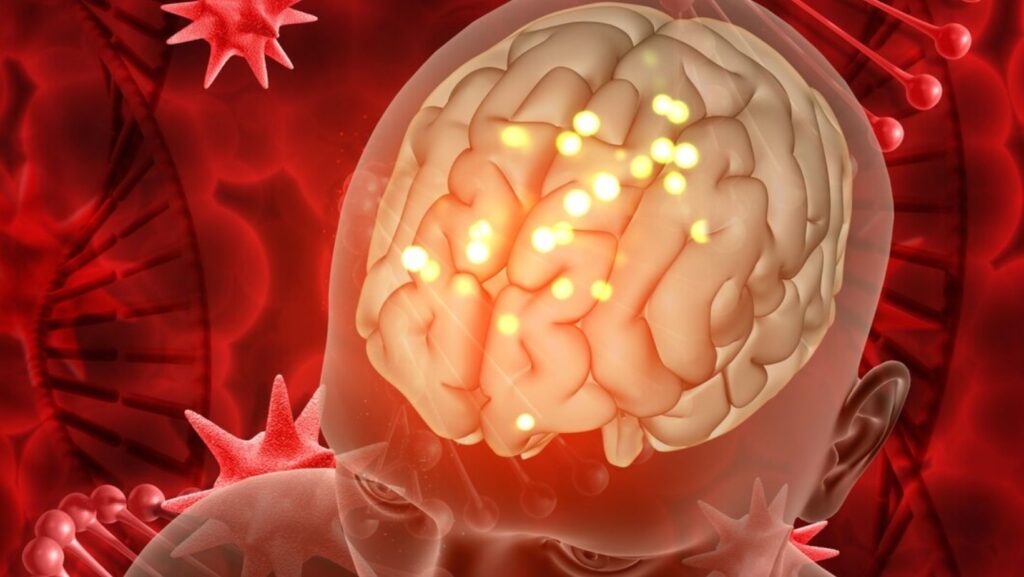New research from the University of Zurich (UZH) has revealed a direct connection between chronic stress, the immune system, and changes in brain function.
This discovery could lead to new treatments for stress-related mental illnesses like depression.
The study, conducted in collaboration with the University Hospital of Psychiatry Zurich (PUK) and the Icahn School of Medicine at Mount Sinai in New York, identifies a key enzyme that migrates from the bloodstream to the brain under stress, altering neuron function and triggering social withdrawal behaviors.
How Chronic Stress Impacts the Brain

While scientists have long known that stress affects both mental and physical health, the mechanisms linking the immune system to stress-related psychiatric disorders have remained unclear. This new study sheds light on that connection by identifying matrix metalloproteinase-8 (MMP-8), an enzyme that increases in response to stress.
“We were able to show that stress raises levels of MMP-8 in the blood and that this enzyme travels to the brain, where it alters neuron function,” said Flurin Cathomas, first author of the study. “In mice, this caused them to withdraw from social interactions—a behavior commonly observed in people with depression.”
Notably, higher levels of MMP-8 were also found in the blood of human patients with depression, suggesting a shared biological pathway between mice and humans.
Stress-Activated Immune Cells Disrupt Brain Function

The researchers discovered that stress increases the migration of monocytes, a type of white blood cell, into the vascular system of the brain’s reward centers. These immune cells produce MMP-8, which alters the extracellular matrix, a structural network that surrounds neurons and supports brain function.
“If MMP-8 penetrates brain tissue, it disrupts this network and impairs normal neuron activity,” Thomas explained. “As a result, affected mice displayed behavioral changes similar to those seen in people with depression.”
To confirm that MMP-8 was responsible for these effects, researchers removed the MMP-8 gene in some mice. Those mice did not exhibit stress-related social withdrawal, reinforcing the enzyme’s role in stress-induced behavioral changes.
Potential for New Depression Treatments

The findings suggest that blocking MMP-8 activity could be a new target for treating depression. While further clinical studies are needed, Cathomas emphasized that understanding the immune-brain interaction already influences modern psychiatry.
“Our work highlights the importance of integrating immune system research into psychiatric treatment,” Thomas said. “At the PUK’s integrative care unit, we are already applying a holistic mind-body approach based on these findings.”
Next, the research team plans clinical studies to explore whether stimulating specific brain regions can regulate immune system activity. They will also investigate whether changes in immune cells among depressed patients influence their behavior—potentially paving the way for new, immune-based mental health therapies.
Reference: Flurin Cathomas, Hsiao-Yun Lin, Kenny L. Chan, Long Li, Lyonna F. Parise, Johana Alvarez, Romain Durand-de Cuttoli, Antonio V. Aubry, Samer Muhareb, Fiona Desland, Yusuke Shimo, Aarthi Ramakrishnan, Molly Estill, Carmen Ferrer-Pérez, Eric M. Parise, C. Matthias Wilk, Manuella P. Kaster, Jun Wang, Allison Sowa, William G. Janssen, Sara Costi, Adeeb Rahman, Nicolas Fernandez, Matthew Campbell, Filip K. Swirski, Eric J. Nestler, Li Shen, Miriam Merad, James W. Murrough, Scott J. Russo. Circulating myeloid-derived MMP8 in stress susceptibility and depression. Nature, 2024.

